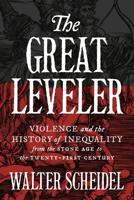Publisher's Synopsis
The dominant idea of this book is that of progress. Morgan conceived it as a career of social states arranged in a scale on which man has worked his way up from the bottom. Progress is historically true of the entire human family, but not uniformly. Different branches of the family have evidenced human advancement to different conditions. He thought the scale had universal application or substantially the same in kind, with deviations from uniformity ... produced by special causes. Morgan hopes therefore to discern the principal stages of human development. Morgan arrived at the idea of a society's progress in part through analogy to individual development. It is an ascent to human supremacy on the earth. The prime analogate is an individual working his way up in society; that is, Morgan, who was well read in classics, relies on the Roman cursus honorum, rising through the ranks, which became the basis of the English ideas of career and working your way up, to which he blends in the rationalist idea of a scala, or ladder, of life. The idea of growth or development is also borrowed from individuals. He proposed that a society has a life like that of an individual, which develops and grows.









